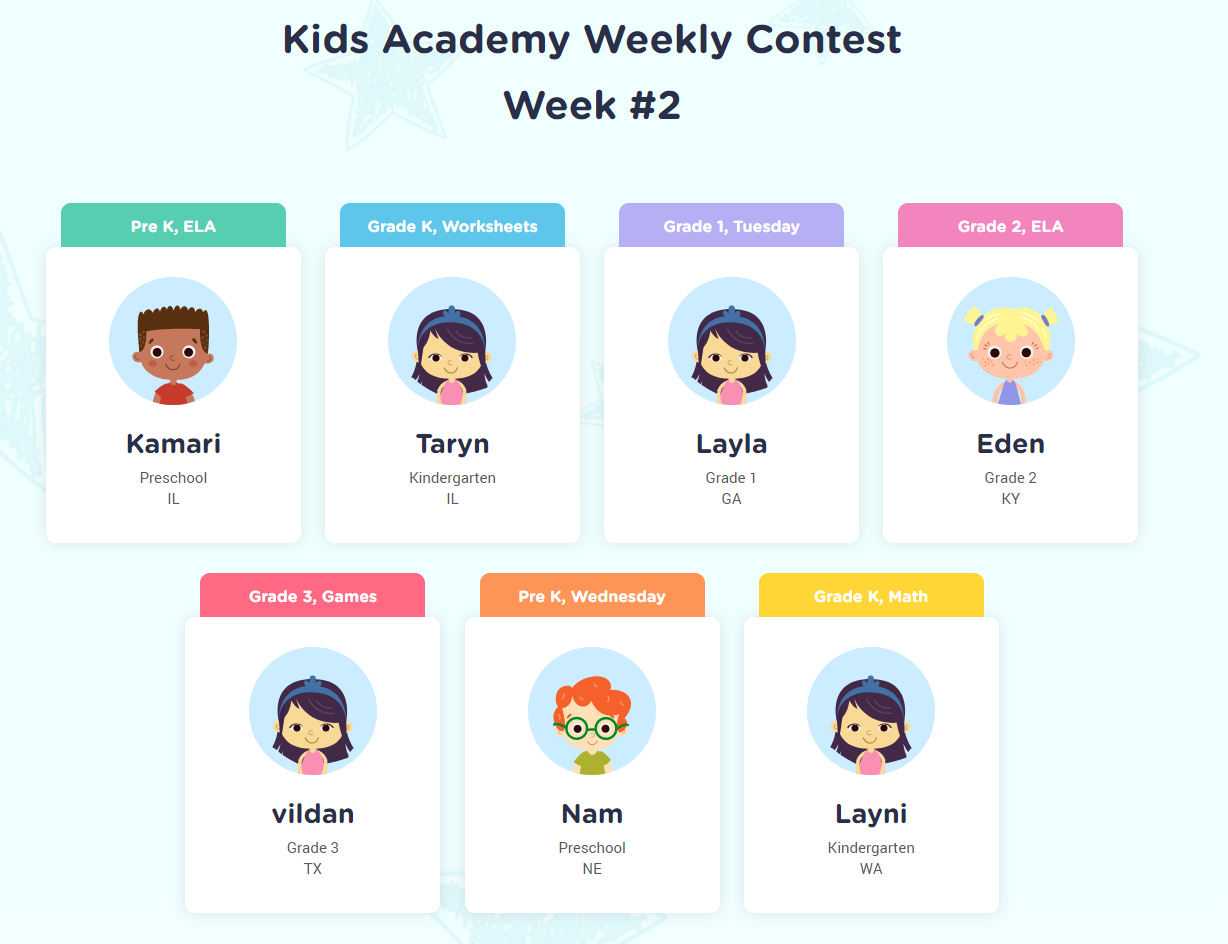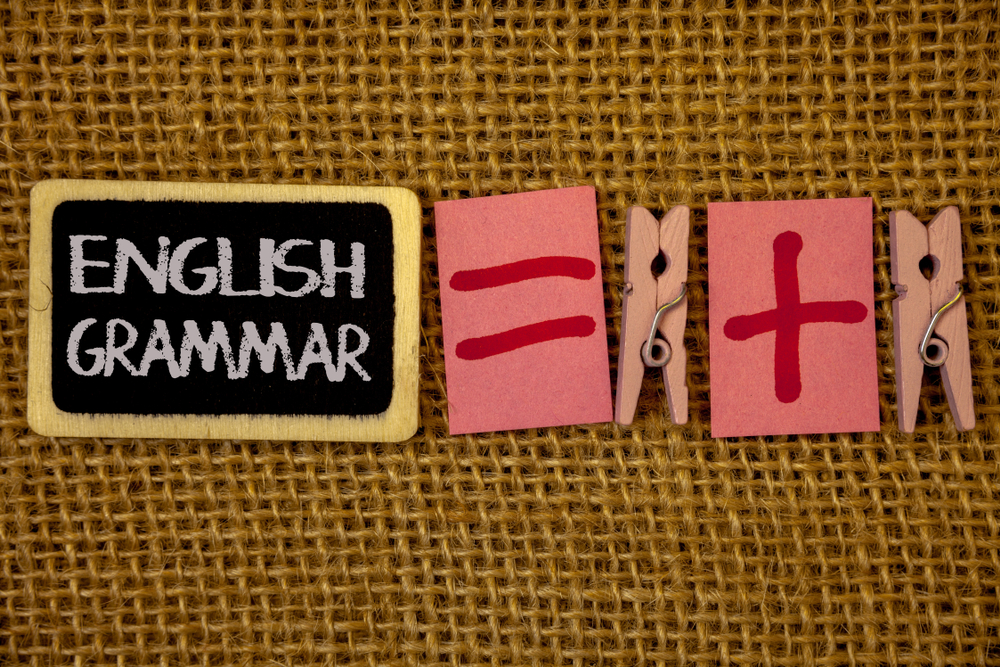Moral lesson understanding Normal Worksheets for Ages 3-9
5 filtered results
-
From - To
Discover our engaging "Moral Lesson Understanding Worksheets" designed for children ages 3-9! These printable worksheets help young learners grasp essential moral concepts while fostering emotional intelligence and ethical thinking. Each activity is tailored to be age-appropriate, encouraging children to explore values like kindness, honesty, and sharing through fun exercises and relatable scenarios. Parents and educators can facilitate meaningful discussions, helping children understand the impact of their actions on others. Our resources promote active learning and support cognitive development, ensuring that children not only learn core morals but also implement them in their daily lives. Start your child’s journey to becoming a compassionate individual today!
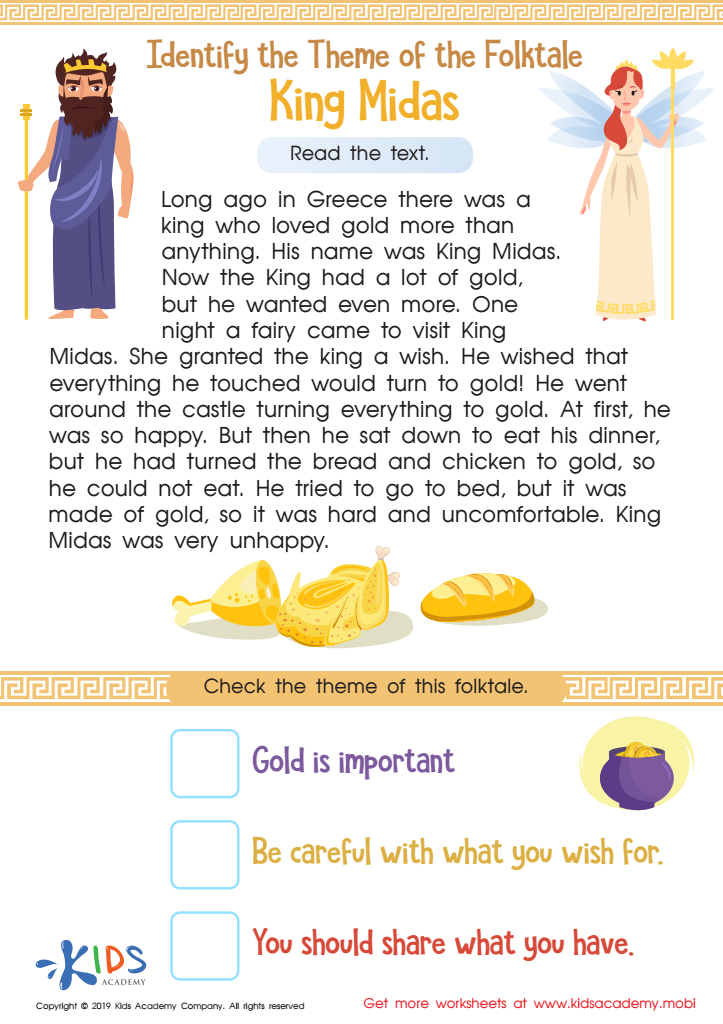

King Midas Worksheet
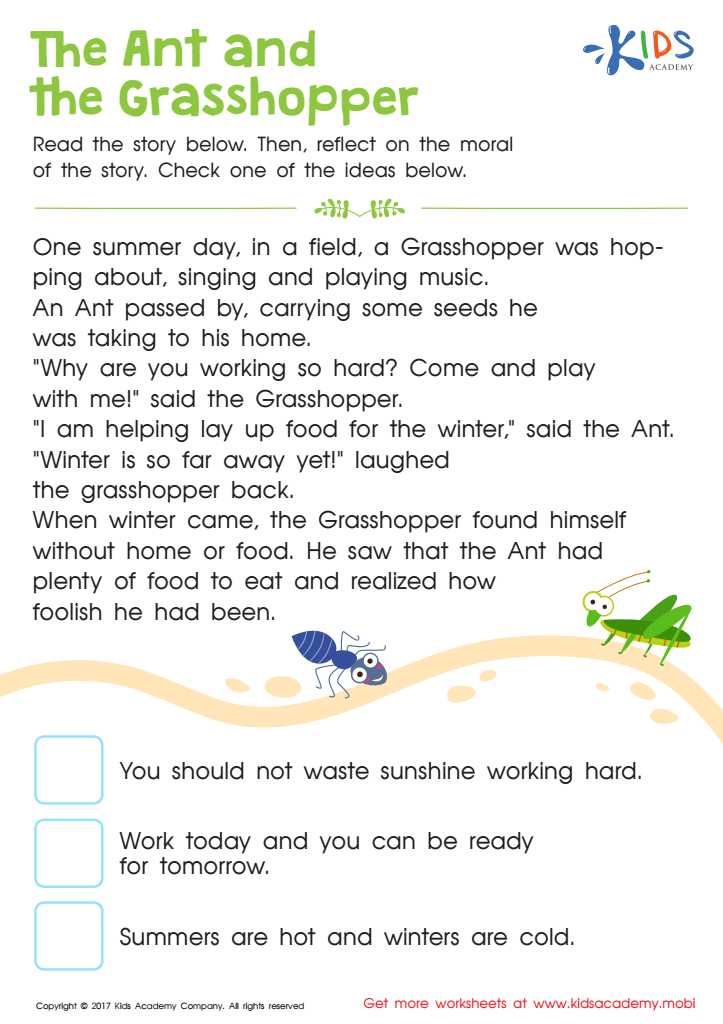

The Ant and The Grasshopper Printable
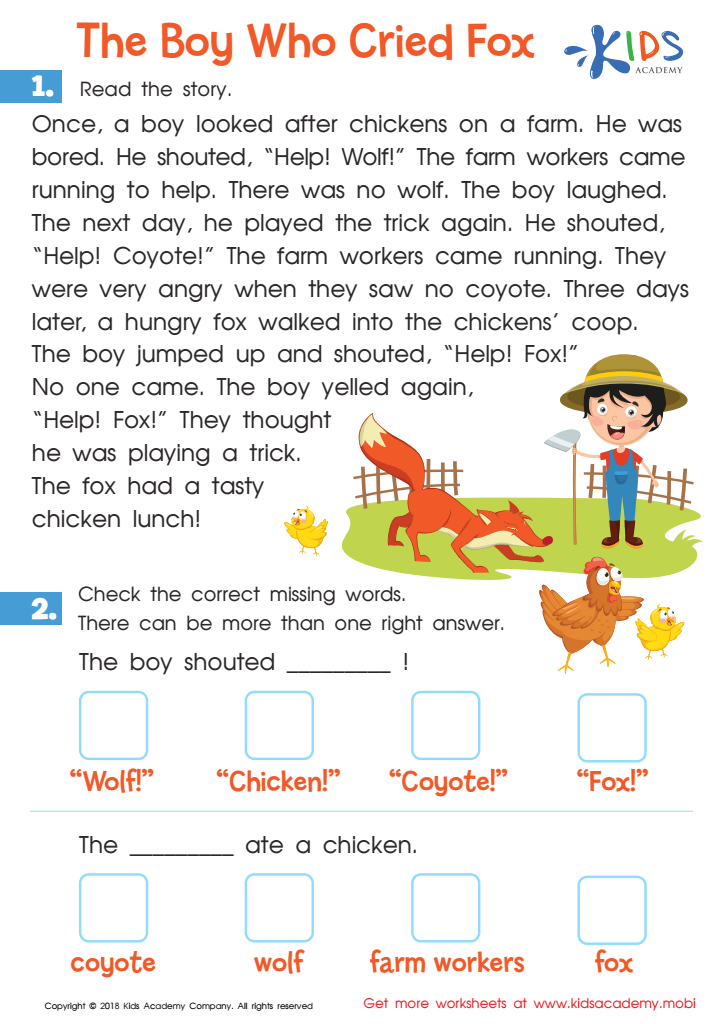

The Boy Who Cried Fox Worksheet
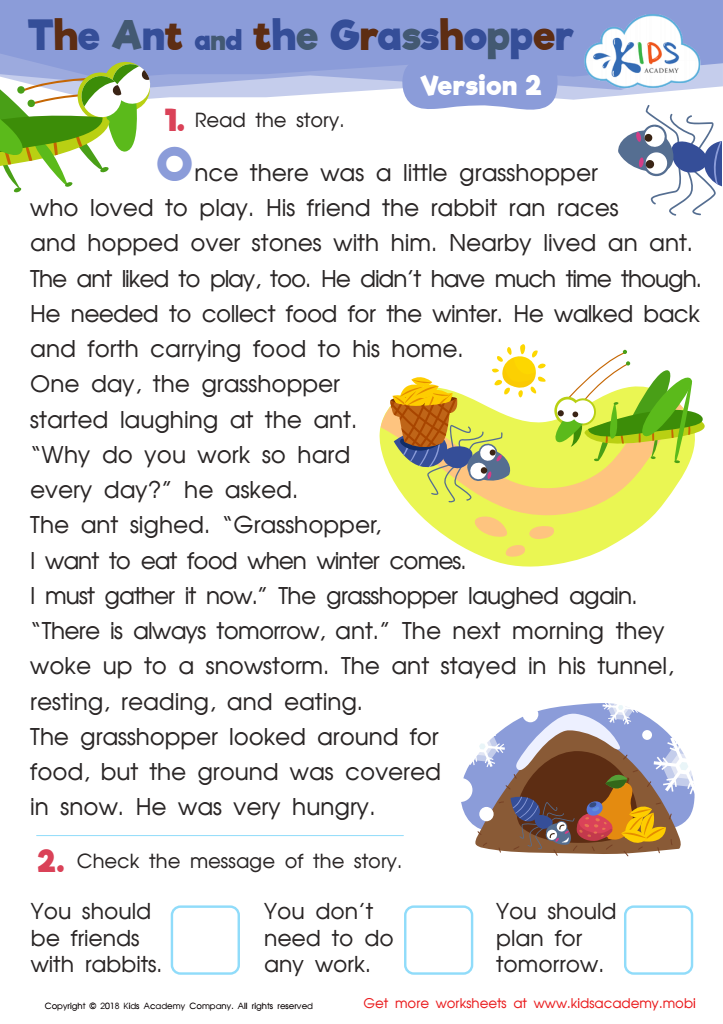

The Ant and The Grasshopper Version 2 Worksheet
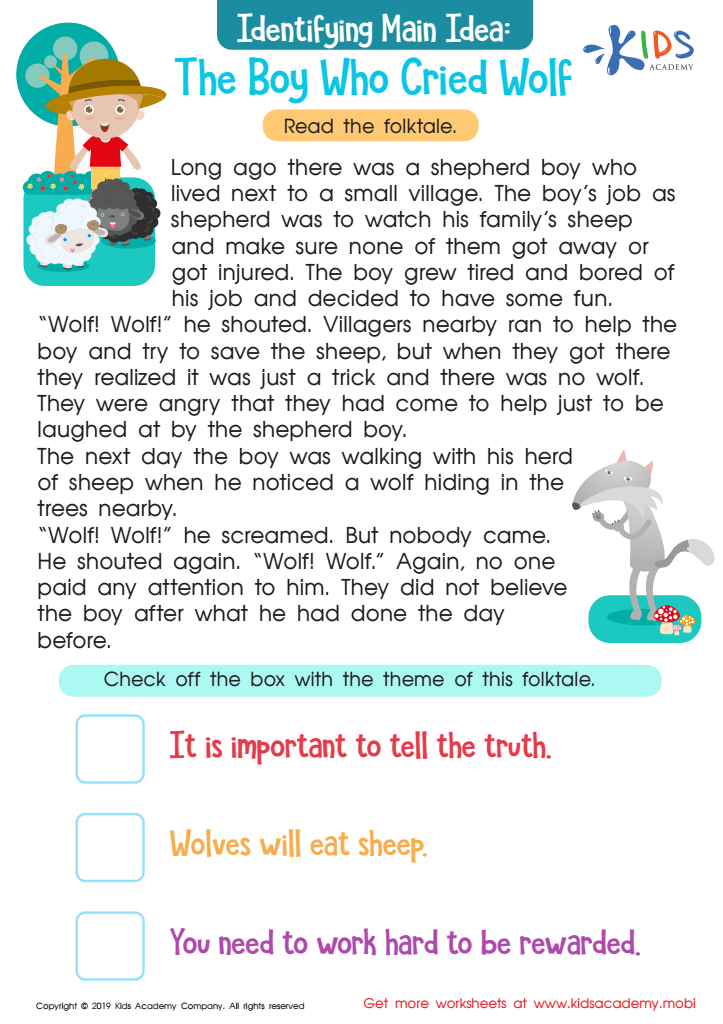

The Boy Who Cried Wolf Part 2 Worksheet
Moral lessons play a crucial role in the development of children aged 3-9, as they help shape character, social skills, and emotional intelligence. During these formative years, children are increasingly aware of social interactions and begin to grasp concepts like right and wrong. Teaching moral lessons fosters empathy, respect, and responsibility, essential traits for successful community members.
Parents and teachers should care about instilling these values since the foundations set in early childhood have lasting impacts. Engaging children in discussions about moral dilemmas through stories, activities, or role-plays enables them to recognize different perspectives and encourages critical thinking. This not only helps in making wise decisions when faced with challenges but also aids in conflict resolution—with skills such as negotiation and understanding being cultivated early on.
Moreover, moral understanding contributes to positive relationships with peers, promoting inclusive behavior in social settings. When children learn to respect differences and practice kindness, they create a supportive environment for everyone. Ultimately, prioritizing moral education enriches children’s lives, helping them become compassionate individuals who positively influence their families and communities as they grow.
 Assign to My Students
Assign to My Students





